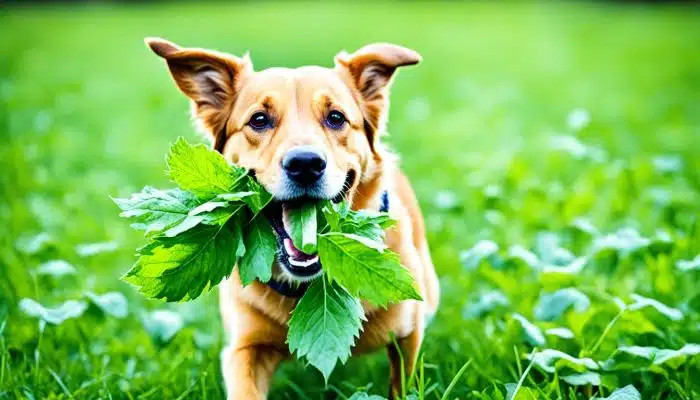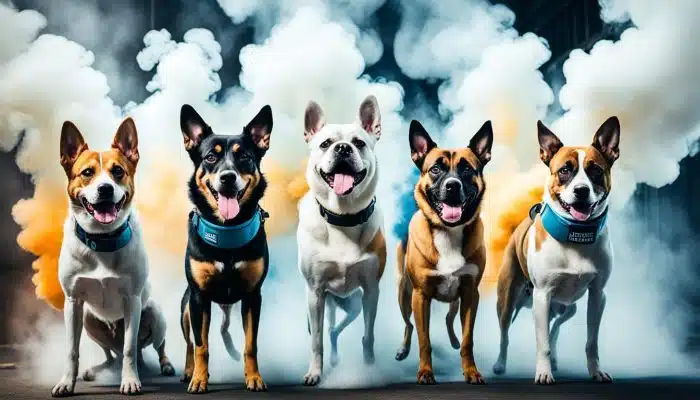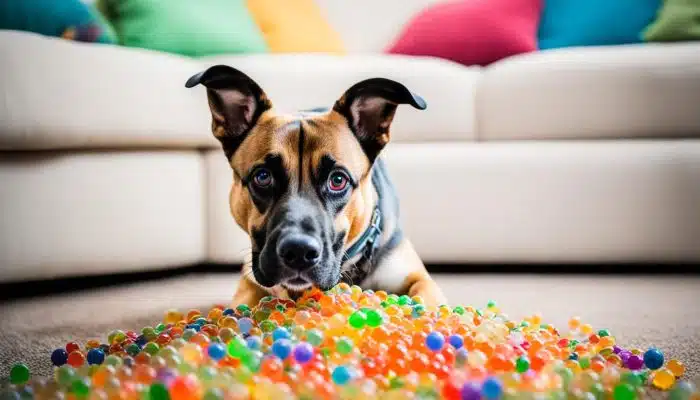Key Takeaway:
- Understanding the importance of potty training for German Shepherd puppies sets the foundation for a well-behaved and hygienic dog.
- Choosing the right method for potty training and implementing specific tips can accelerate the learning process.
- Avoiding common mistakes, being patient, and maintaining a calm approach can contribute to successful potty training and minimize accidents.
German Shepherd puppies can bring joy and companionship to your life, but potty training can be a challenge. In this section, we will discuss the importance of potty training for German Shepherd puppies and the factors that contribute to successful training. Learn how to lay a solid foundation for your puppy’s bathroom habits and ensure a cleaner and happier living environment for both of you.
Understanding the Importance of Potty Training for German Shepherd Puppies
It’s very important to understand the significance of potty training German Shepherd puppies. This teaches them the correct elimination habits. This helps keep your home clean and sets up a routine. By realizing the value of potty training, owners can be involved in their puppy’s learning and give them regular guidance.
Potty training is a must for GSD puppies. This sets up good habits from an early age. A well-trained pup will know when and where to go and accidents in the house will be minimized. Also, it promotes better hygiene and stops the spread of harmful bacteria. Teaching them to go outside or in a designated spot makes for a cleaner living environment.
Potty training also plays a big part in strengthening the bond between owner and puppy. With consistent training, owners can communicate with their puppy and build trust. This builds a positive relationship and sets the groundwork for obedience training later on.
It’s important to remember that each pup is different and progress may vary. Some may learn quickly while others may take a bit longer. Patience and consistency are the keys to successful potty training.
By understanding the importance of potty training German Shepherd puppies, owners can start the process with confidence. Knowing how to choose the right methods, recognize the need to go to the toilet, deal with accidents, consider age-related progress and look for any health issues or disorders will help ensure success.
Factors to Consider for Successful Potty Training
German Shepherds can be potty-trained with some important factors in mind. Consistency, patience, proper timing, positive reinforcement, accident prevention, and supervision are key.
A consistent routine and schedule is essential. Feed them regularly and take them out often. Praise and rewards for successful ‘elimination’ create a stress-free environment.
Potty training takes time; be patient! Respond to signals quickly and reward desired behaviours. Set up the environment for success. Monitor the puppy closely for redirection or bathroom breaks.
These factors will help potty train your furry friend. Remember, even a German Shepherd can learn to ‘go’ with the flow!
Choosing the Right Method for Potty Training

Photo Credits: Petgiftsandtoys.Com by George Ramirez
When it comes to potty training your German Shepherd puppy, choosing the right method is crucial. In this section, we’ll explore different approaches to potty training and how they can contribute to faster learning. Whether you’re looking for specific tips or want to optimize your puppy’s training experience, we’ve got you covered. Let’s dive in and set the groundwork for a successful potty training journey with your furry companion.
Specific Tips for Faster Learning
German Shepherd puppies can learn faster with specific potty training tips. These strategies are designed to help them understand and adapt quicker. Try these to get luck on your shoe:
- Create a routine: Take your puppy outside regularly to form a pattern.
- Reinforce good habits: Give rewards for successful toilet trips outside.
- Supervise closely: Keep an eye on them indoors and take them out when you notice signs.
- Designate an area: Pick one spot in your yard for them to go to the toilet.
- Correct calmly: Interrupt accidents without punishing, redirect them outside, and clean up messes.
- Use cue words: Train them to associate certain words or phrases with going potty.
Provide patience and support during potty training. Use interactive toys and scent markers in the designated area to reinforce the association. German Shepherd puppies will learn faster and develop good habits. Stepping in dog poop is a classic example of finding the wrong kind of luck on your shoe!
Common Mistakes to Avoid in Potty Training

Photo Credits: Petgiftsandtoys.Com by Brandon Hill
To potty train a German Shepherd puppy and succeed, there are some mistakes to totally avoid. Consistency with the schedule is key. Establish a routine for bathroom breaks and stick to it. Punishing your pup for accidents is a no-no. It can cause fear and anxiety. Also, don’t forget to give enough opportunities for outdoor bathroom breaks!
- Create a consistent schedule: Set certain times for bathroom breaks and adhere to them. Take your pup outside 1st thing in the morning, after meals, and before bedtime.
- Utilize positive reinforcement: Encourage your pup by rewarding whenever they go outside. Praise and give treats as rewards.
- Supervise and limit access: Keep an eye on your pup during the potty training. Supervise them indoors and limit access to certain areas of the house. Use baby gates or crates to create boundaries.
- Clean accidents correctly: In case of accidents, use an enzymatic cleaner specifically designed for pet accidents to remove any odor. This will stop your pup from going back to the same spot again.
Potty training takes time and patience. Every pup is different, so be understanding and consistent. Avoid common mistakes and follow the proper routine. That’s how you can effectively potty train your German Shepherd puppy!
Prohibited Methods of Potty Training

Photo Credits: Petgiftsandtoys.Com by Ryan Martin
Potty training a German Shepherd pup needs effective methods. These methods should be positive and understood by the pup. Some techniques must be avoided as they can block the training and slow progress.
- Do not use punishment. Scolding or physical discipline when the pup has an accident indoors will create a bad bond with potty training. It can cause fear or anxiety. The pup could even hide accidents instead of learning to go outside.
- Do not use aggressive techniques. Shouting, yelling or being physical will be counterproductive. It will frighten the pup and stop them from eliminating in the right place. This will further delay the training.
- Do not use confusing signals. Mixed signals or no routine will confuse the pup. They cannot understand when and where to eliminate. Inconsistent commands or gestures will lead to accidents inside and stop the pup from learning proper potty habits.
Do not use methods that seem like quick fixes. Prioritize the pup’s emotions and use techniques that create a positive environment. Patience and consistency will help successful potty training and form good habits for life.
Understanding the Time and Patience Required for Potty Training
Potty training a German Shepherd pup needs understanding, time and patience. It’s a process that can’t be rushed. Consistency is key to providing guidance and teaching the pup where and when to go.
Here’s a 4-step guide:
- Create a routine: Have a fixed schedule for eating, watering and bathroom breaks. This will help the pup create a reliable elimination pattern and avoid accidents indoors.
- Supervise and confine: Watch the pup all the time, especially early on. Use a leash or confine it to a small puppy-proofed area when you can’t.
- Use positive reinforcement: Let the pup know when it goes to the right spot with praise and treats. This reinforces the desired behavior and helps consistency.
- Be patient and consistent: Know that accidents will happen, early on. Stay calm and don’t scold. Redirect to the potty area and keep training.
Time to potty train can vary in pups. Some catch on quick, others take longer. Adapt the training to the pup’s individual needs.
A plus is that German Shepherds are intelligent and want to please. These traits can help in potty training with positive reinforcement.
In short, potty training a German Shepherd pup takes time, patience, and consistency. Follow a routine, supervise and confine, use positive reinforcement, and be patient and consistent. Adapt the training to suit the pup’s individual needs and characteristics.
Fun fact: German Shepherds are often used as police, military and service dogs because of their intelligence and versatility. (Source: ‘How to potty train a German Shepherd puppy’)
Recognizing Signs that the Puppy Needs to Go to the Toilet

Photo Credits: Petgiftsandtoys.Com by Kenneth Baker
Recognizing when a German Shepherd pup needs to go to the loo is key for successful potty training. It’s important to detect these signs in order to avoid accidents inside.
- Sniffing and circling: One classic sign is when they start sniffing and circling a spot. This means they are looking for the right place to do their business.
- Constant whimpering or restlessness: If they become restless or keep whining without any obvious reason, it could be that they need to go. This usually comes with pacing and sudden changes in activity.
- Whining or scratching the door: Pups may also display signs of needing to go by whining or scratching the door. They’re trying to get someone’s attention to be let outside.
- Sniffing the ground intensely: Another sign to look out for is when they intensely sniff the ground. This shows they are searching for a place to go and may soon need to go.
- Restlessness after meals: After a meal, they may become restless or start pacing. This means their digestive system is getting active – so they may soon need to go.
- Sudden change in behavior: If they suddenly change behavior, such as getting hyperactive or distracted, it could mean they need to go, urgently.
Remember, every pup is different and may show variations in these signs. Additionally, it’s important to have a routine in place and ensure they have regular access to the outside. By recognizing the signs and reinforcing good behavior, potty training a German Shepherd pup can be a successful and rewarding process.
Dealing with Accidents and Maintaining a Calm Approach

Photo Credits: Petgiftsandtoys.Com by Jerry Lee
Dealing with accidents and potty training a German Shepherd puppy needs calmness. Reacting with anger or frustration can stop the training. So, here’s a 4-step guide:
- Stay calm: When you find an accident, don’t be mad. Take a deep breath and don’t scare your puppy.
- Clean up: Use a pet mess cleaner to get rid of the smell. It will prevent the puppy from making the same mistake.
- Positive reinforcement: Take the puppy to the potty area and reward them with praise and treats when they go there.
- Routine: Feed, potty break, and playtime should have a regular schedule. It will help the puppy understand when they need to go outside.
Accidents are normal during the potty training process. Each puppy learns at their own pace. Patience and consistency can help potty train your German Shepherd.
Understanding the Age-Related Progress in Potty Training

Photo Credits: Petgiftsandtoys.Com by Eric Williams
Potty training a German Shepherd puppy is essential. It’s a gradual process that needs patience and consistency.
Between 8 to 12 weeks, puppies are still learning bladder control. They may have accidents and struggle to hold their pee. Establish a routine and take them outside often to eliminate.
At 12 to 16 weeks, they start to understand potty training. They might scratch the door or whine when they need to go out. Praise and give treats when they go in the right spot.
At 4 to 6 months, they should have a better grasp of potty training. Fewer accidents, but still need regular breaks.
By 6 to 8 months, most German Shepherds will be fully potty trained. They should have better control and can hold it for longer. Remember, each puppy develops at their own pace, so be patient throughout the training.
Preparing for Potential Health Issues or Disorders

Photo Credits: Petgiftsandtoys.Com by Christian Moore
To ensure a German Shepherd puppy’s well-being, it is crucial to prepare for potential health issues or disorders. Veterinary check-ups and vaccinations are essential. Keeping their environment clean and providing a balanced diet are important for prevention. Exercise and mental stimulation can help maintain physical and mental health. Grooming is also important for hygiene. Be aware of breed-specific health concerns such as hip dysplasia, monitoring mobility and consulting with a vet if signs of discomfort or difficulty in movement are observed. Being proactive in monitoring health and addressing any concerns will ensure the puppy grows up healthy and happy.
Tips for Successful Potty Training in Various Situations

Photo Credits: Petgiftsandtoys.Com by David Baker
Train your German Shepherd puppy successfully – act now! Consistency and patience are key. Understand their schedule and behavior to anticipate their needs. Train them with proper supervision, positive reinforcement, and a designated potty area. Clean up accidents without punishment.
Start early to establish good habits and avoid prolonging the process. With these tips, you can achieve success in potty training in various situations. Enjoy the benefits of a clean pup – worth the effort and dedication!
Conclusion
Potty-training a German Shepherd pup needs consistency, patience, and positive reinforcement. Mark a spot outside for potty breaks, and take your pup there often. Utter cues to egg them on, and give rewards or treats when they do it right. Monitor them and try to prevent accidents indoors. Crate-training can also be useful in teaching your pup bladder control. Mishaps may occur during the training, but with consistency and positive reinforcement, the puppy will eventually learn to potty outside.
GSDs have a natural instinct to keep their home tidy, making them easier to potty train compared to some other breeds. It’s important to start the training while young and impressionable. Set up a routine for feeding, potty breaks, and sleep to help the pup learn when and where to go. Consistency is the key here.
Every pup is unique, and may progress at their own pace. Don’t punish or scold your pup for accidents, as that’s counterproductive. Instead, focus on rewarding and praising them for going outdoors. With a consistent and encouraging approach, your pup will be fully potty trained in no time.
Some Facts About How to Potty Train a German Shepherd Puppy:
- ✅ Potty training a German Shepherd puppy requires patience and persistence. (Source: Team Research)
- ✅ The main rule is to teach the puppy not to pee or poop inside the house. (Source: Team Research)
- ✅ Factors to consider for successful potty training include understanding the puppy’s nature, creating the right conditions, and establishing a routine. (Source: Team Research)
- ✅ Using paper or pee pads can confuse the puppy, so it’s best to train them to go outside from the beginning. (Source: Team Research)
- ✅ Common mistakes to avoid in potty training include not properly cleaning accidents and not having a specific cue for potty runs. (Source: Team Research)
FAQs about How To Potty Train A German Shepherd Puppy
Question 1: How can I potty train my German Shepherd puppy using the “Not in My House” method?
Answer 1: To use the “Not in My House” method, you should redirect your puppy when they show signs of needing to go potty inside. Take your puppy outside to the designated spot and use a verbal cue, like “go potty,” to encourage them. Reward your puppy with praise and treats when they go potty outside.
Question 2: Are Yorkshire Terriers easy to potty train like German Shepherds?
Answer 2: No, Yorkshire Terriers (Yorkies) are more resistant to potty training compared to German Shepherds. Toy breeds like Yorkies can be more stubborn when it comes to toilet training.
Question 3: What are some helpful tips for potty training a German Shepherd puppy?
Answer 3: Some helpful tips for potty training a German Shepherd puppy include establishing a routine, using a special cueword, providing support and reinforcement through positive reinforcement rewards, and taking the puppy outside after meals and before bedtime.
Question 4: Can physical punishment be used for potty training a German Shepherd puppy?
Answer 4: No, physical punishment should never be used for potty training any puppy. It is important to train them in a stress-free manner using positive reinforcement methods.
Question 5: How can I potty train my German Shepherd puppy to urinate outdoors using the “What’s That Smell” method?
Answer 5: To use the “What’s That Smell” method, you can use a puppy potty training spray to mark an area in your yard. Take your puppy to the marked spot on a leash and allow them to sniff the spray, encouraging them to go potty. Reward your puppy with praise and treats when they use the designated spot.
Question 6: Can crate training be helpful in potty training a German Shepherd puppy?
Answer 6: Yes, crate training can be a useful tool for potty training a German Shepherd puppy. Puppies instinctively do not use the bathroom where they sleep, so utilizing a properly-sized crate can teach the puppy to hold it until they are let outside. It is important to clean any accidents in the crate immediately.




